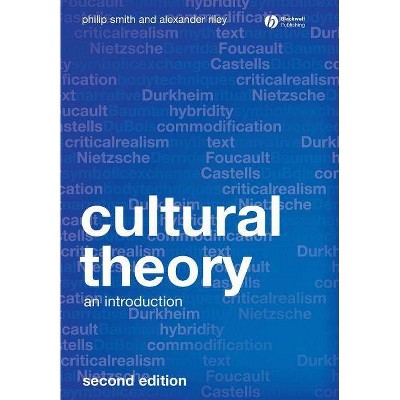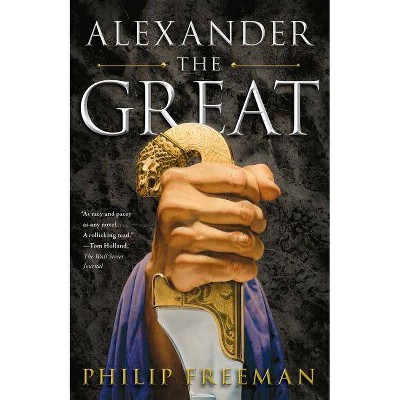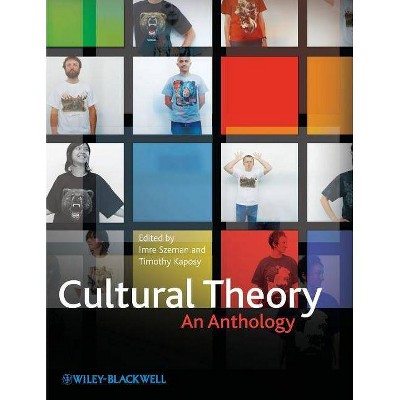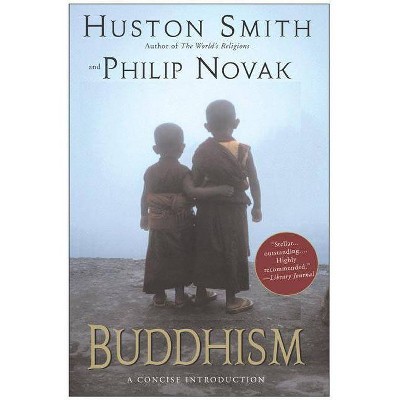Cultural Theory 2e - 2nd Edition by Philip Smith & Alexander Riley (Paperback)

Similar Products
Products of same category from the store
AllProduct info
<p/><br></br><p><b> Book Synopsis </b></p></br></br>This second edition of <i>Cultural Theory</i> provides a concise introduction to cultural theory, placing major figures, traditional concepts, and contemporary themes within a sharp conceptual framework. <ul> <li>Provides a student-friendly introduction to what can often be a complex field of study</li> <li>Updates the first edition in response to reader feedback and to the changing nature of the field</li> <li>Includes additional coverage of theorists from the classical period to include Nietzsche and DuBois</li> <li>Introduces entirely new chapters on race and gender theory, and the body</li> <li>Considers themes that have become more important in theoretical activity in recent years such as computers and virtual reality, cosmopolitanism, and performance theory</li> <li>Draws on theories and theorists from continental Europe as well as the English-speaking world</li> </ul><p/><br></br><p><b> From the Back Cover </b></p></br></br>This second edition of the renowned <i>Cultural Theory</i> provides a systematic and accessible introduction to cultural theory, encapsulating a usually complex field in a concise and balanced overview. <p>This fully revised and expanded second edition provides a comprehensive tour of the major figures, themes, and debates in cultural theory, from Durkheim and Weber through to Foucault and Butler, and from charisma to consumption, but also introduces entirely new chapters on race and gender theory, and the body. Other new material includes treatments of thinkers such as Nietzsche, DuBois, and Eagleton, and considers important contemporary themes, including virtual reality and cosmopolitanism.</p> <p>Internationally respected by students and teachers alike, the first edition of <i>Cultural Theory</i> has been translated into several languages and became legendary on campuses worldwide. This new, restructured edition, packed with special features for students and accompanied by a website, promises to be the most authoritative text of its kind.</p><p/><br></br><p><b> Review Quotes </b></p></br></br><br>Highly recommended to anyone interested in acquiring a theoretical basis on which to systematize their knowledge of cultural theory. Indeed, the authors manage to make the complex simple enough to understand without oversimplifying. (<i>Discourse Studies</i>, 2010) <p>"Presenting such a wide-ranging and multifarious set of ideas in a coherent manner constitutes a very considerable achievement. The book offers anyone interested in cultural theory a broad conspectus--provided of course it is read as a whole." (<i>Metapsychology Online Reviews</i>, February 2009)</p><br><p/><br></br><p><b> About the Author </b></p></br></br><b>Philip Smith</b> is Associate Professor of Sociology at Yale University and Deputy Director of the Yale Center for Cultural Sociology. His books include <i>Cultural Theory: An Introduction</i> (Blackwell, 2001), <i>Why War? The Cultural Logic of Iraq, the Gulf War and Suez</i> (2005), <i>The Cambridge Companion to Durkheim</i> (with Jeffrey C. Alexander) (2005), and <i>Punishment and Culture</i> (2008).<br /> <p><b>Alexander Riley</b> is Associate Professor of Sociology at Bucknell University. He is the author of <i>Godless Intellectuals?: How Durkheimian Sociology and Poststructuralism Reinvented the Intellectual Pursuit of the Sacred</i> (2008).</p>
Price History
Price Archive shows prices from various stores, lets you see history and find the cheapest. There is no actual sale on the website. For all support, inquiry and suggestion messages communication@pricearchive.us




















